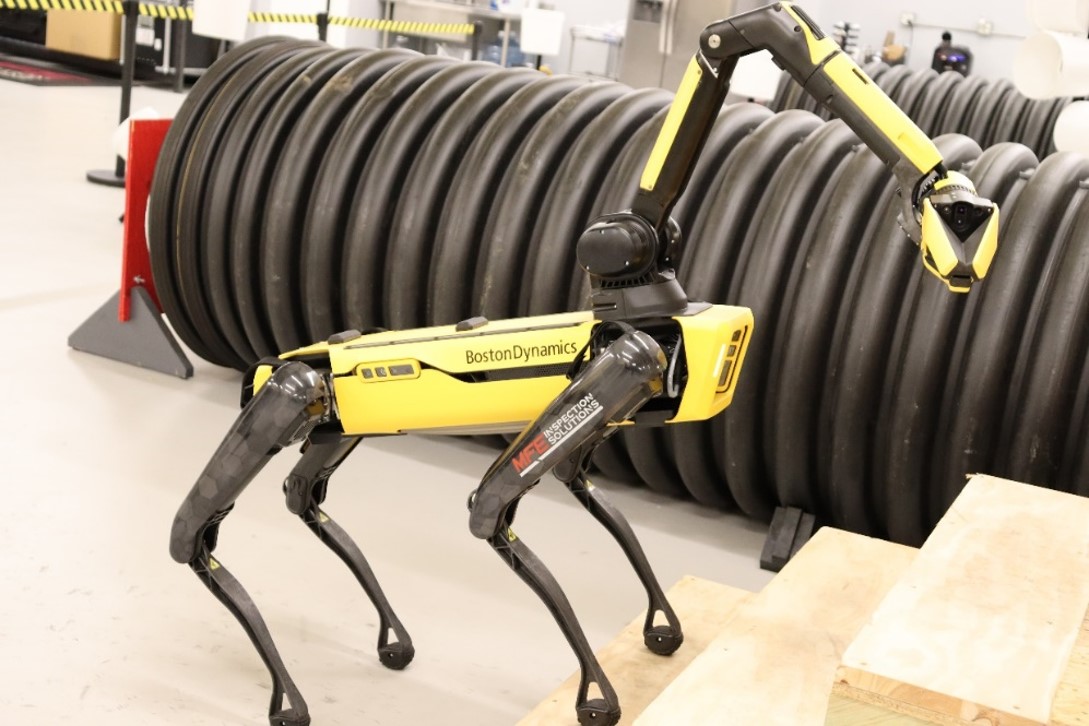Robotics in Energy
-
ApplicationApplication Closed
-
Pricing
Discount may apply
Course Price: TBD -
Schedule
Check back Fall 2025 for schedule updates.
Why This Program?
There is a growing demand for robotics systems in production, inspection, and maintenance within the energy industry – both onshore and offshore – driven by the desire to minimize the risk of human exposure to hazardous environments and reduce operating costs. However, a significant gap exists between the current workforce's expertise and the rapidly evolving technologies. Deploying robots in inspecting, monitoring, and maintaining energy assets requires an in-depth understanding of robotic systems, including the ability to identify a specific use case, assess the impact of robotics on the business, and maintain the value of the robot to ensure it continues to operate safely and profitably.
To address these challenges, the Subsea Systems Institute (SSI), collaborating with SPRINT Robotics, has developed a Robotics in Energy course focusing on safety, reliability, business impact, and use cases. The micro-credential course provides participants with a comprehensive understanding of the robot integration process, including economic evaluation and qualification. It also includes an evaluation tool/protocol for risk and safety management, enabling participants to assess the feasibility of incorporating robots into their working environment.

Who should attend?
This course has been designed primarily for personnel in the energy industry with the following interests.
- Those who need to be aware of the current robotic technology, as well as benefits and risks, to assist business decisions.
- Those who need an appropriate strategy to evaluate the business impact of robots and maintain both safety and sustainability.
- Those who need a sufficient understanding of the working principles and a robotics vocabulary to work with people from various backgrounds
- Those from non-robotics backgrounds wish to gain a deeper understanding of robotics and its applications.
Learning Outcome
After successfully completing this program:
- Gain a comprehension of the various robotic technologies being adopted in the energy sector, including downhole and in-tank robotics, underwater vehicles, and AI.
- Have a clear understanding of the critical issues related to safety, risk, and economy when adopting robots and be able to evaluate them through qualitative and quantitative methods.
- Plan and apply a robotic project across various disciplines within engineering, maximizing the benefits and mitigating the risks associated with robotic integration.
Pricing
Contact us for discount information.
COURSE PRICE:
$ TBD
Course Overview
Module 1: Technology awareness (Online)
- Robotics in extreme environments: Downhole, Tank & Confined space, Extreme temperature & pressure
- Subsea & Underwater robotics
- AI & Digital twin for inspection
Module 2: Robotic integration & Business management (Online & In-person)
- Asset owner
- Operator and service provider
Module 3: Safety & Risk assessment and management (Online & In-person)
- Processes and tools for RAMS (Reliability, Availability, Maintainability and Safety) achievement
Instructors

Rami Jabari
Engineering Consultant, Aramco Americas

Brant Cassimere
Instrumentation and Controls Supervisor, ExxonMobil

Tao Cheng
Technology Development Lead, ExxonMobil

Mauricio Calva
Inspection Engineer, Chevron

John O'Brien
Senior Consultant, itcSkills

Caroline Roberts
Managing Director, Astrimar

Ralph Gall
Technical Sales Manager, Sonardyne

Thomas Culverhouse
ADCP Group Manager, Sonardyne

Xavier Quintanilla
Program Manager North America, Sprint Robotics

Kimberley Hayes
CTO, Valkim Technologies

Yvan Petillot
Professor of Robotics and Autonomous Systems, Heriot-Watt University National Robotarium

John Allen
Industry Liaison, Allen Energy Consultants, LLC (AEC)

Eddie Gutierrez
North America Sales Manager, Nexxis

Ivan Miestchovich
sUAS Technical Specialist, MFE Inspection Solutions

Chance Kirkpatrick
Unmanned Technical Support Specialist (Robotics), MFE Inspection Solutions
Credentialing Overview
- A digital badge will be issued after successfully completing this course.
- Texas professional development hours and continuing education units available.
Micro-credentials are certifications for mastery of specific topic areas or skillsets. To earn a micro-credential, you typically have to complete a certain number of activities, assessments, or projects related to a topic.